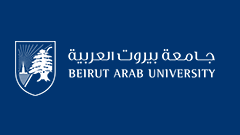Abstract
Global Warming is one of the greatest environmental threats of the 21st century. Many parties around the world like governments, corporations, and researchers, etc. are working hard to find solutions. Architectural education is concerned with global warming issues, and trying to achieve reliable design related solutions for a sustainable environment. Majority of the students use simulation programs to determine with accuracy some variables that can support designers to take decisions about the best strategies to apply for any type of building. These simulation programs are usually selected based on their straightforward and user-friendly interface. The most common programs among architecture students at the Beirut Arab University are Ecotect, DesignBuilder and CFD. However, not all the results are precise nor are they based on an accurate scientific basis. This paper will discuss the scientific background, interface, and capability of these programs. In addition compare them in order to establish their differences, besides a brief overview about energy simulation concepts. In addition the research will conduct a survey measuring the awareness and benefit of the three programs among students as a design decision supporting tool. Furthermore students that already implemented these programs in their design will be selected, to show how they dealt with these programs and how these programs interfered with their design decision making. The selection of the students will show the appropriate year to add this program as a supporting tool for architectural design studio.
Keywords
Architectural design studio. Building simulation programs, CFD, DesignBuilder, Ecotect
Disciplines
Architecture | Arts and Humanities | Education | Engineering
Recommended Citation
Sidani, Adeeb and Omar, Osama
(2016)
"ATTAINING THE APPROPRIATE SIMULATION PROGRAM TOWARDS BETTER ENVIRONMENTAL DECISIONS,"
Architecture and Planning Journal (APJ): Vol. 23:
Iss.
2, Article 16.
DOI: https://doi.org/10.54729/2789-8547.1085
Included in
Architecture Commons, Arts and Humanities Commons, Education Commons, Engineering Commons

